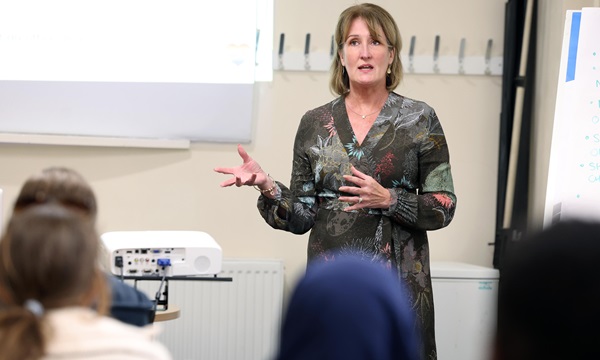The planned reopening of the economy and the Budget has boosted business spirits, the IoD’s latest Confidence Tracker reveals.
- Directors’ optimism in the economy is at its highest since just after the 2019 General Election, moving further into positive territory since February (+14, up from +5)
- Just under two thirds (62%) of company directors polled said the Budget had improved prospects for the economic recovery
- Business leaders’ net optimism in the 12-month outlook for their own organisations rose from +36 to +41
- Net investment and hiring intentions for the year ahead picked-up (+19 and +18 respectively)
- After Covid-19 and the economy, adjusting to new trading terms with the EU was a top factor having a negative impact on business
Robert Lloyd Griffiths, National Director for Wales at the Institute of Directors, said:
“After an enduring year defined by challenge after challenge, the clouds are finally parting for businesses.
“The roadmap to reopen the economy, the successful vaccine rollout, and the Budget, have all buoyed directors' confidence in the first quarter. Having plumbed to new depths of pessimism amidst the pandemic and Brexit uncertainty last year, firms are now embracing a cautiously optimistic outlook for the year ahead.
“Extensions to furlough and other reliefs in the Budget have staved off fears of an impending cliff edge in support measures. As the roadmap progresses, firms can now rescale over the spring and summer months with the cushion of the Government's economic package still beneath them.
“Hiring plans are also edging up as businesses look to meet pent-up demand as the economy reopens. Meanwhile, business leaders are starting to consider investing in capital and technology, boosted by improved economic clarity and incentives like the new super-deduction tax allowance.
“Despite the improved economic outlook, policymakers and business leaders should take care not to slip into complacency. The Government should continue to be on hand to extend cashflow support if the roadmap faces speedbumps, and firms will need ongoing help to navigate new trading terms with the EU. Businesses meanwhile should continue to invest in their skills and digital capabilities to adapt to the demands of the post-pandemic economy.”
Full survey results
703 respondents, conducted between 12 – 29 March 2021.
How optimistic are you about both the wider UK economy and your organisation over the next 12 months?
| Very optimistic | Quite optimistic | Neither optimistic nor pessimistic | Quite pessimistic | Very pessimistic | |
| Wider UK economy | 7% | 41% | 18% | 23% | 11% |
| Your (primary) organisation | 11% | 46% | 27% | 14% | 2% |
Comparing the next 12 months with the last 12 months, what do you believe the outlook for your organisation will be in terms of:
| Much higher | Somewhat higher | No change | Somewhat lower | Much lower | |
| Revenue | 11% | 44% | 19% | 18% | 6% |
| Cost | 5% | 52% | 30% | 10% | 2% |
| Business investment | 5% | 31% | 47% | 11% | 5% |
| Employment | 3% | 29% | 54% | 10% | 3% |
| Employee wages | 2% | 39% | 51% | 5% | 2% |
Which of the following factors, if any, are having a negative impact on your organisation?
| Coronavirus outbreak | 62% |
| UK economic conditions | 51% |
| New trading relationship with the EU | 42% |
| Global economic conditions | 38% |
| Compliance with Government regulation | 34% |
| Skills shortages/employee skills gaps | 30% |
| Broadband cost/speed/reliability | 29% |
| Business taxes | 29% |
| Employment taxes | 25% |
| Difficulty or delays obtaining payment from customers | 20% |
| Transport cost/speed/reliability | 20% |
| Cost of energy | 17% |
Overall, what assessment would you give to the March 2021 Budget in terms of its impact on:
| Very positive | Somewhat positive | Neither positive nor negative | Somewhat negative | Very negative | |
| The economic recovery | 10% | 52% | 24% | 11% | 3% |
| Your primary organisation | 6% | 31% | 48% | 13% | 2% |





















